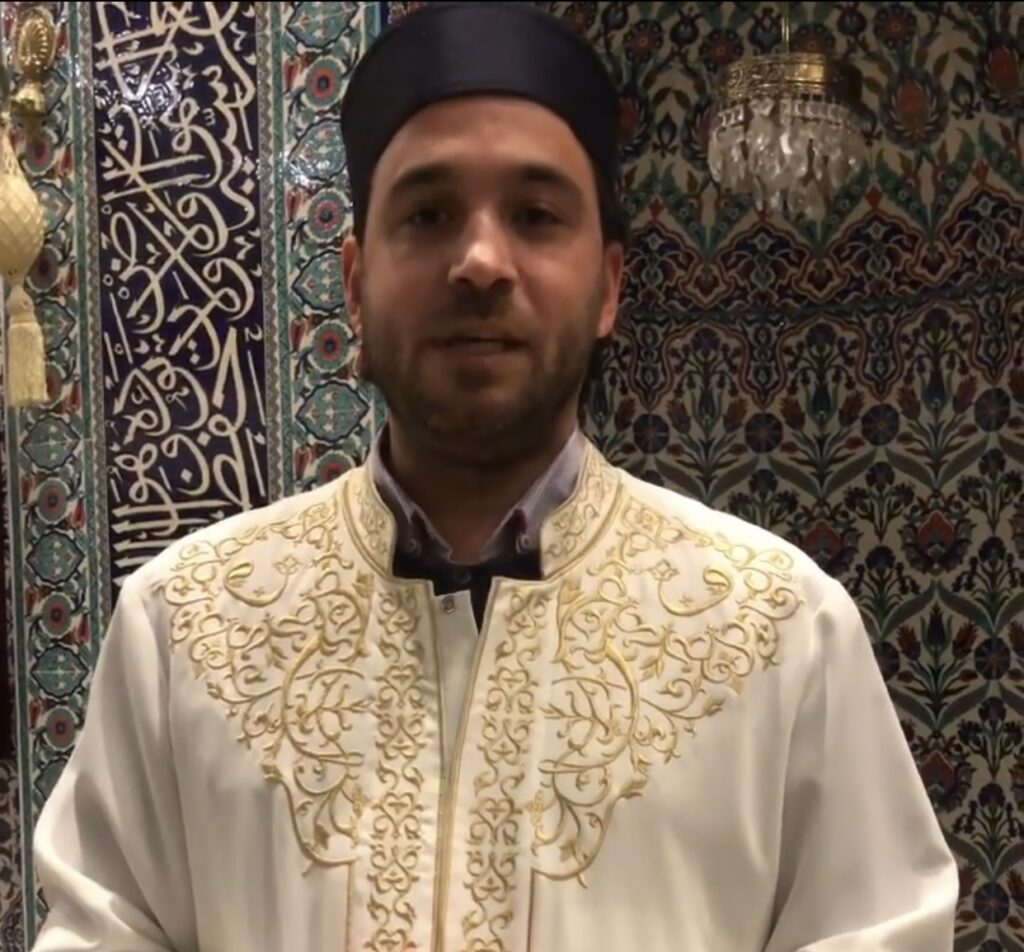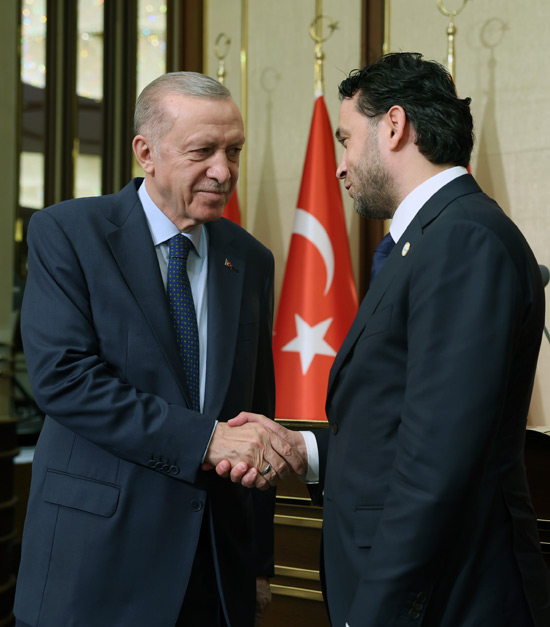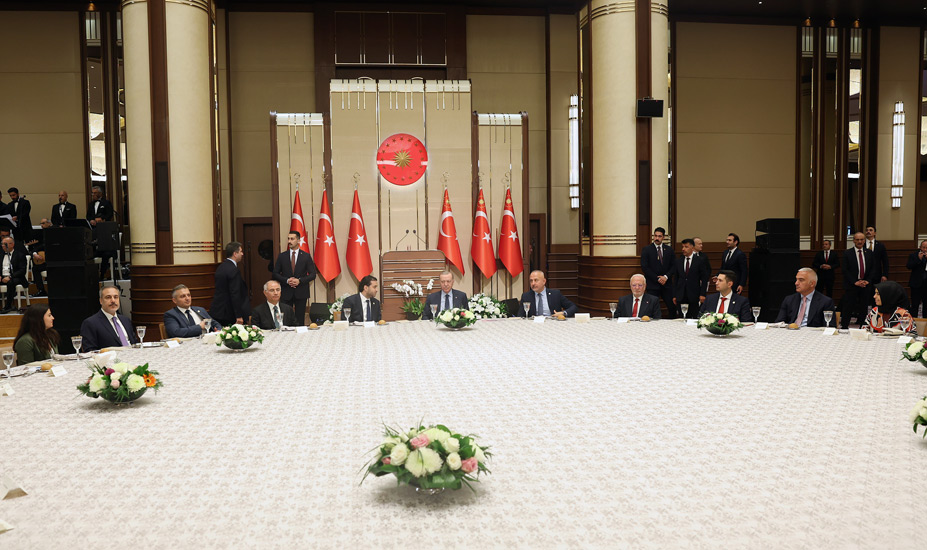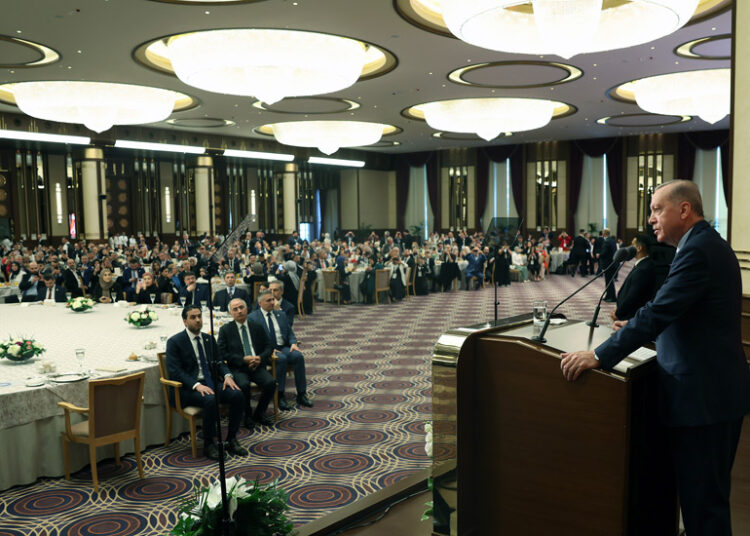Levent Kenez/Stockholm
Turkish President Recep Tayyip Erdogan on Thursday hosted members of the Union of International Democrats(UID), an organization acting as a foreign interest group representing Erdogan’s ruling Justice and Development Party (AKP) abroad, in Ankara. He urged the UID members to put aside internal disputes, participate in the European Parliament (EP) elections and focus on lobbying activities.
During the general assembly held by the UID on January 26, 2024, the organization’s former president and his team were ousted, and Kenan Aslan, a 41-year-old residing in the Netherlands, was appointed as the new president. Internal strife between the UID teams in the Netherlands and Germany came into focus, with both sides accusing the other of insincerity. Zafer Sarıkaya, the AKP deputy chairman who executed the ouster, became the target of criticism and was accused of building his own team. Due to his strong leadership of the party and his current position as president, Erdogan remains immune to criticism from within his party.
Furthermore, the appointment of someone from the Netherlands to lead the Germany-based organization sparked controversy among UİD members in Europe.

Former UID president Köksal shared the message, “A person without character is worth little,” on January 3. He also liked a tweet stating, “Unfortunately, the AKP has become a party that works for the interests of those who are distant from the people. They have left the people in misery; we regret voting for them. It’s a shame that the AKP has now become the party of a certain class and the wealthy, no longer representing the poor.”
However, Erdogan expressed his support for the ouster within the UID during his address to the members on Thursday, stating that the organization has been further strengthened and refreshed and its solidarity and motivation increased with the new team. Erdogan emphasized that with internal disputes put aside, the organization will be more successful.
According to what Nordic Monitor has learned from AKP members in Europe, the debates within the UID have not come to an end. Members of the party, blaming each other following the AKP’s poor performance in local elections on March 31 and its unprecedented outcome of coming in second for the first time in its history, claim that self-interest led to this result. Former president Kuş criticized party headquarters for not taking responsibility for the failure, stating in a message, “We are in a period where the hard worker is being punished. Unfortunately, everyone is forming their own team. If this continues, we will experience even worse consequences living abroad.”
Adem Taflan, a member of Kuş’s team and the most vocal critic of the changes in the UID, criticized the non-invitation of the former president and board members to the Thursday meeting, saying they would have extended such a courtesy during their own time in office. He claimed that the new board was uncomfortable with the former executives contacting President Erdogan.

Within the UID, another topic of debate and concern revolves around the impending transformation of the organization’s structure, where individuals associated with the Islamist National View Foundation (IGMG, or Die Islamische Gemeinschaft Millî Görüş) are wielding greater influence. Aslan, presently a prominent figure within National View in the Netherlands, is seen as instrumental in this transition. Notably, the IGMG holds a more Islamist and conservative stance than Erdogan’s AKP, signaling potential tensions within the UID’s ideological direction.
Moreover, some UID members with a background in the AKP express discomfort not only with the preference for rewarding former members of National View, which is now opposing Erdogan in Turkey, but also with the lack of recognition for their own voluntary efforts.
During Thursday’s meeting, Erdogan also urged UID members to be more active, particularly in Europe. Urging them to assert their rights in the countries where they reside, he emphasized the need to increase the pace of the struggle with the motto, “Rights are not given, they are taken.” He stated, “As the European Turkish community, you must tighten your ranks and act with a more dynamic, inclusive and embracing approach than ever before.”
Erdogan added, “I always say that wherever we live, we are obliged to be strong as a nation. Weakness does not befit the descendants of a nation that has carried the banner of Islam for centuries, filled with glorious, historic victories. Being left behind is never, ever fitting.”

President Erdogan views the recent implementation of measures by Germany to ease dual citizenship regulations positively “following years of resistance” and highlights the potential benefits for individuals to take advantage of this opportunity in their struggle for rights and equality.
Erdogan emphasized the importance of the EP elections in June, stating that it is crucial for Muslim/Turkish voices to be heard and urging everyone not to overlook the significance of voting in these elections. He indirectly called for support for Islamist figures running in the elections. Due to low turnout in many European countries, well-organized candidates from small marginal parties or independents have a chance of being elected. For instance, Sweden’s Islamist and pro-Erdogan Nuance Party (Partiet Nyans, or PNy) has set its sights on entering the EP, launching its campaign, especially in immigrant-populated areas.












